Craft Brewery Equipment
Craft breweries are all the rage these days. They bring a personal touch to beer, offering unique flavors and that delightful local vibe. But behind every pint of artisanal beer is a system of specialized equipment working tirelessly. If you’re venturing into the craft brewing world, understanding the tools of the trade is essential. In this article, we’ll dive deep into the essentials, processes, suppliers, and even the pros and cons of different systems.
Overview of Craft Brewery Equipment
Craft brewery equipment consists of a range of specialized tools designed to facilitate the brewing process. From mashing and fermentation to packaging, each piece of equipment serves a vital role. Here are the core components:
- Mashing Tun: Used to mix crushed grains with water, converting starches into fermentable sugars.
- Boil Kettle: Where the wort is boiled and hops are added for flavor.
- Fermenters: Tanks where yeast converts sugars into alcohol and carbon dioxide.
- Bright Tanks: Used to carbonate beer and prepare it for packaging.
- Cooling Systems: Essential for regulating temperatures during fermentation.
- Cleaning Systems: Keep the equipment hygienic and free of contaminants.
Each of these tools is designed to optimize efficiency, ensure quality, and maintain consistency. Let’s dive deeper into the brewing process and the role each piece of equipment plays.
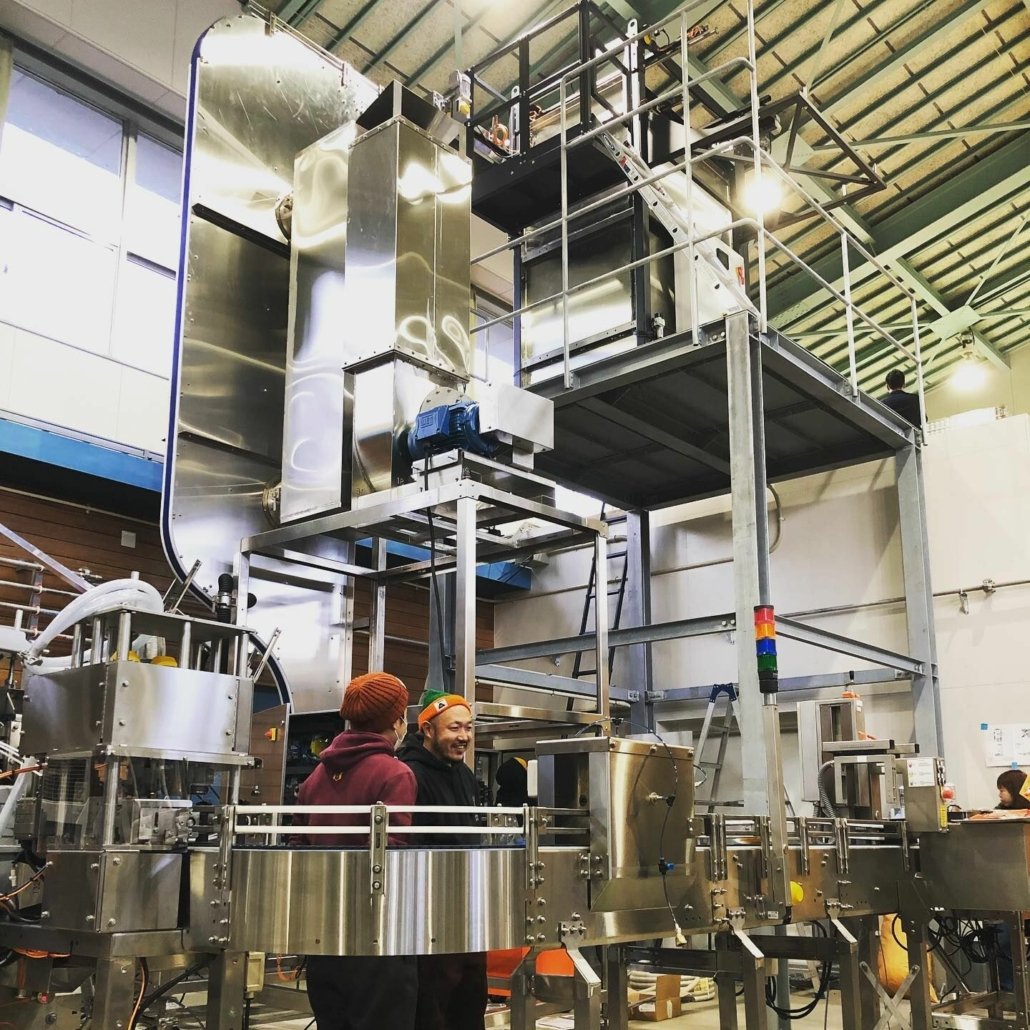
Troubleshooting Common Issues with Beer Fermenters
Fermenters are the workhorses of any brewery, but they’re not without challenges. Here are some common issues and solutions:
- Temperature Fluctuations: Fermentation requires precise temperature control. If your beer isn’t fermenting as expected, check the cooling system for faults or leaks.
- Contamination: A funky smell or taste? It’s likely due to improper cleaning or sealing. Regular cleaning and sanitizing are non-negotiable.
- Pressure Build-up: Fermentation produces CO2, and without proper venting, tanks can become dangerous. Ensure your valves and vents are functioning correctly.
- Stuck Fermentation: If the yeast stops working prematurely, it could be due to insufficient nutrients or incorrect temperature.
Proactive maintenance and regular checks are your best defense against these issues.
The Brewing Process Explained
Brewing beer is both art and science, requiring precision at every step. Here’s a breakdown:
- Mashing: Crushed grains (malt) are mixed with hot water in the mashing tun. This activates enzymes that break down starches into fermentable sugars.
- Lautering: The mixture is transferred to a lauter tun, where the liquid wort is separated from the grain husks.
- Boiling: The wort is boiled in the kettle, and hops are added for bitterness and flavor.
- Cooling: After boiling, the wort is rapidly cooled to fermentation temperature using a heat exchanger.
- Fermentation: The cooled wort is transferred to fermenters, where yeast is added to convert sugars into alcohol.
- Conditioning: Beer is transferred to bright tanks for carbonation and flavor refinement.
- Packaging: The finished beer is packaged into kegs, cans, or bottles.
Every stage requires precision and the right equipment to produce high-quality beer.
Capacity, Space, Design, and Layout of Craft Brewery Equipment
| Feature | Details |
|---|---|
| Capacity | Ranges from 1-barrel (small-scale) systems to 30+ barrels for mid-sized craft breweries. Larger systems increase production but require more space. |
| Space Requirements | Compact designs are available for small breweries, but larger setups need dedicated areas with appropriate ventilation and drainage. |
| Design | Modular systems allow for expansion. Stainless steel is the material of choice for durability and hygiene. |
| Layout | Efficient layouts minimize movement between equipment and optimize workflow. Custom layouts depend on brewery size and production goals. |
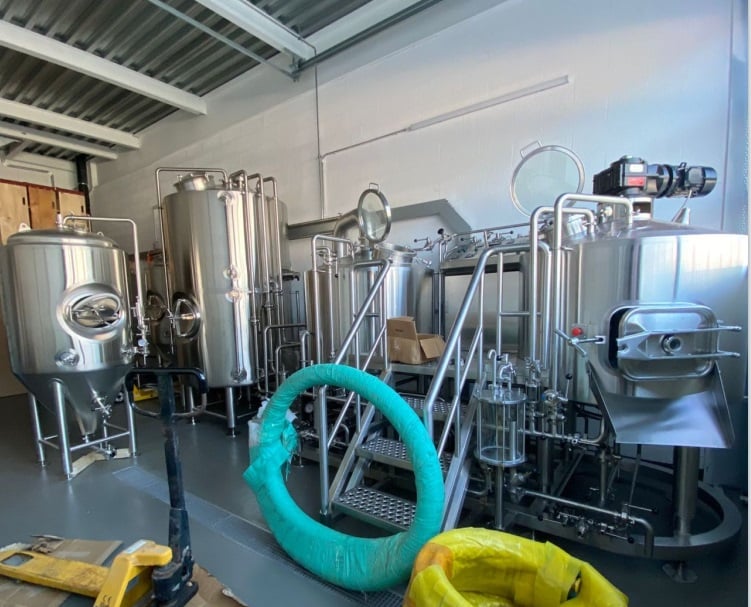
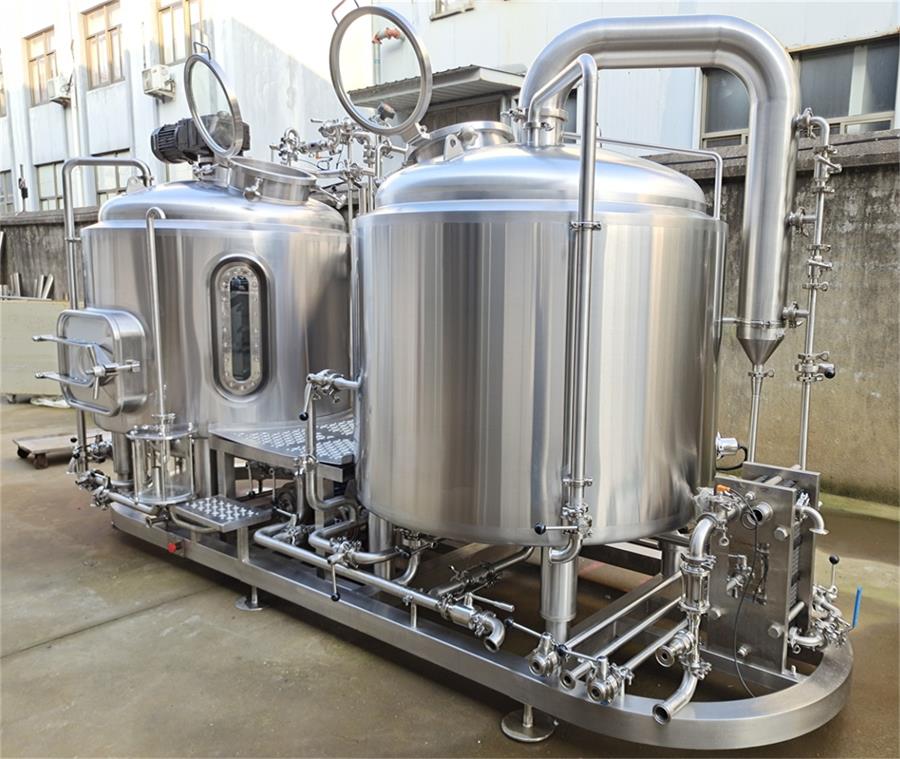


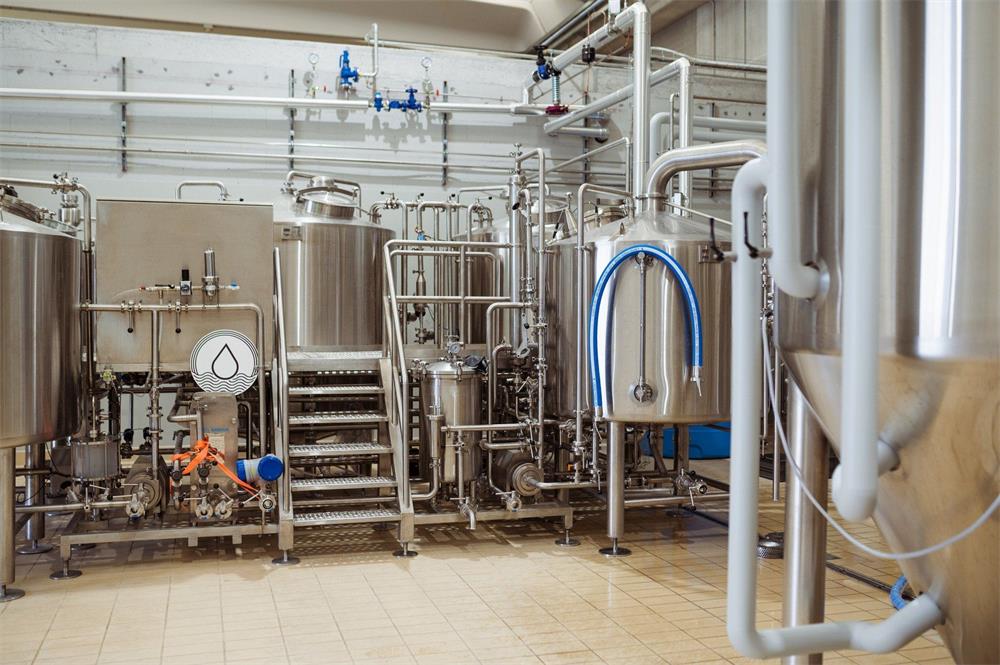
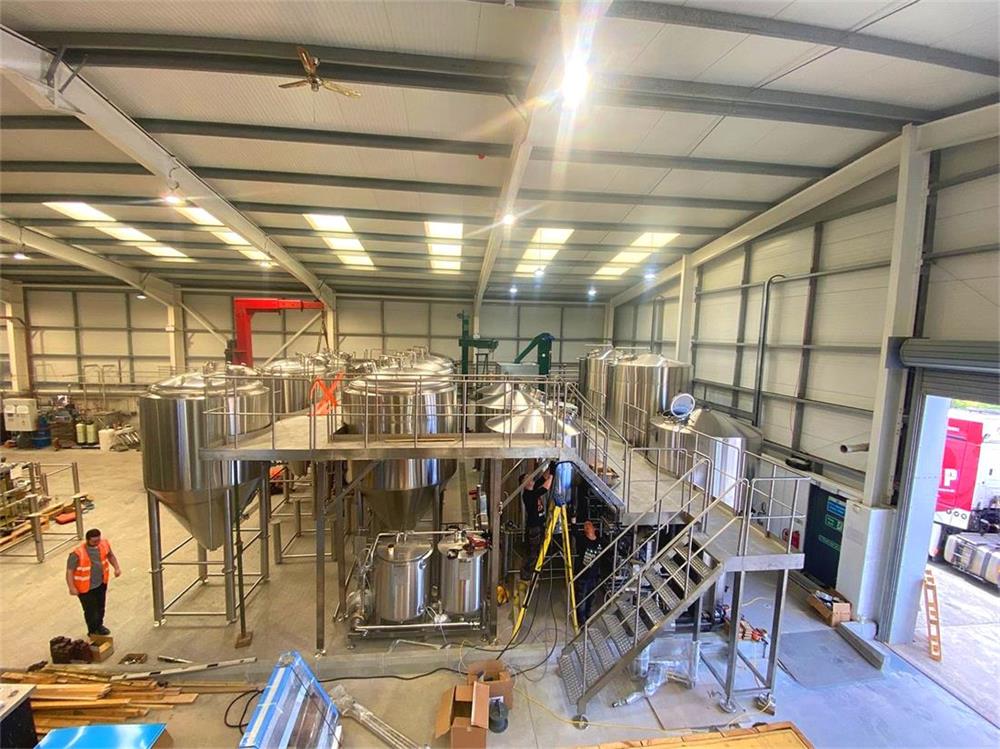
Suppliers and Price Range of Craft Brewery Equipment
| Supplier | Price Range | Specialization |
|---|---|---|
| ABC Brew Systems | $10,000 – $50,000 | Small to mid-sized brewing systems with customization options. |
| BrewTech Co. | $20,000 – $100,000 | Known for advanced automation and high-capacity systems. |
| Global Brewing Supplies | $15,000 – $70,000 | Focus on sustainable and energy-efficient designs. |
| Local Craft Solutions | $8,000 – $40,000 | Ideal for start-ups and nano breweries. |
Prices vary based on capacity, customization, and additional features.
Installation, Operation, and Maintenance of Craft Brewery Equipment
| Aspect | Details |
|---|---|
| Installation | Requires skilled technicians to assemble tanks, connect cooling systems, and set up electrical components. |
| Operation | Includes automated controls for temperature and pressure. Training is recommended for operating advanced systems. |
| Maintenance | Regular cleaning, inspecting seals and valves, and ensuring proper calibration of sensors and controls. |
Proper installation and consistent maintenance extend the life of your equipment and ensure optimal performance.
Choosing the Right Supplier
| Factor | Details |
|---|---|
| Reputation | Research customer reviews and testimonials to gauge reliability. |
| Customization Options | Look for suppliers offering tailored solutions to meet your brewery’s unique needs. |
| After-Sales Support | Ensure they provide training, maintenance, and readily available spare parts. |
| Budget | Balance cost with quality—cheaper isn’t always better when it comes to durability. |

Pros and Cons of Craft Brewery Equipment
| Aspect | Advantages | Limitations |
|---|---|---|
| Modularity | Allows expansion as the brewery grows. | Initial cost can be high. |
| Automation | Improves consistency and efficiency. | May require specialized training to operate. |
| Durability | Stainless steel equipment lasts for decades. | Regular maintenance is essential to prevent wear and tear. |
FAQs
| Question | Answer |
|---|---|
| What size system should I start with? | Consider your production goals; nano breweries typically start with 1-3 barrel systems. |
| How much does a brewery setup cost? | Costs range from $50,000 to $500,000 depending on capacity and automation. |
| How often should equipment be cleaned? | After every batch, with periodic deep cleaning to remove buildup. |
| Can I upgrade my system later? | Yes, modular systems are designed for expansion as your business grows. |
Frequently Asked Questions (FAQ)
1) What capacity and utility specs should I prioritize when selecting craft brewery equipment?
- Match brewhouse size to weekly turns and cold-side tank ratios (typical FV capacity = 2–3x brewhouse). Ensure utilities: 3-phase power, steam or direct fire BTU load, glycol chiller sizing (1.2–1.5 tons/10 bbl of active fermentation), floor drains, and adequate water pressure/filtration.
2) Is automation worth it for nano and small craft breweries?
- Yes, targeted automation (mash temp control, lauter rake/VFD, kettle boil control, knockout temp automation, and tank temp PID) improves consistency and reduces losses without the cost of full SCADA.
3) Which heat source is best: steam, direct fire, or electric?
- Steam offers the best control and efficiency for 7 bbl+ systems. Direct fire is lower CapEx but less uniform. Electric is clean and precise where power is affordable and sufficient; pair with heat recovery to reduce OPEX.
4) How do I size the glycol system for my fermenters and bright tanks?
- Calculate peak load: sum active fermentations + crash cooling. Rule of thumb: 1–1.5 kW per bbl during crash; include 15–25% safety margin and insulated trunk lines. Verify glycol concentration (30–35%) and pump head for all jackets.
5) What are the most overlooked maintenance tasks that impact beer quality?
- CIP validation (spray-ball coverage), PRV testing on unitanks, DO/CO2 sensor calibration, heat exchanger descaling, and gasket replacement schedules. Neglecting these increases contamination and oxygen pickup.
2025 Industry Trends: Craft Brewery Equipment
- Energy optimization by default: heat recovery on wort cooling, steam condensate return, and variable-speed pumps standard on mid-tier systems.
- Low-oxygen brewing practices: closed transfers, hop dosers, and inline DO monitoring adopted widely for hop-forward SKUs.
- Smart cellars: tank sensors (temp/pressure/level) tied to mobile alerts; predictive diacetyl-rest and crash profiles reduce tank turns by 5–10%.
- Water stewardship: inline CA/RO blending and CIP reuse loops to meet stricter municipal discharge limits.
- Safety upgrades: CO2 monitoring interlocks and confined-space-ready manways increasingly required by insurers and code.
2025 Equipment Benchmarks and Costs
| Category | Typical Spec (2025) | Cost Range (USD) | Notes/Impact | Sources |
|---|---|---|---|---|
| Brewhouse (5–15 bbl) | 2–3 vessel, steam or direct fire, semi-automated | 45,000–180,000 | Higher efficiency with mash mixer + lauter rake | Brewers Association (BA), vendor catalogs |
| Fermenters (FV) | Jacketed, 15–30 psi PRV, CIP-ready | 6,000–22,000 per FV (7–15 bbl) | Closed dry-hop ports now common | MBAA TQ, supplier specs |
| Bright Tanks (BBT) | Dimple jacket, carb stone, 30 psi | 5,000–18,000 (7–15 bbl) | Improves turnaround and clarity | Supplier sheets |
| Glycol System | 3–15 HP, 30–35% glycol, dual pumps | 8,000–40,000 | Size for crash load + margin | ASBC utilities guides |
| Heat Exchanger | 2-stage (glycol + city water) | 3,000–12,000 | Enables water heat recovery | BA sustainability |
| Inline QA | Portable DO/CO2 meter | 3,500–15,000 | Critical for LODO practices | ASBC Methods |
| CIP Skid | Dual-tank, heat + dosing | 6,000–25,000 | Cuts chemical use, boosts hygiene | Vendor data |
References:
- Brewers Association Technical and Sustainability resources: https://www.brewersassociation.org
- Master Brewers Association of the Americas (MBAA) Technical Quarterly: https://www.mbaa.com
- American Society of Brewing Chemists (ASBC) Methods: https://www.asbcnet.org
Latest Research Cases
Case Study 1: Heat Recovery + Low-Oxygen Upgrades in a 10 bbl Brewhouse (2025)
Background: A small craft brewery faced high utilities and hop aroma fade.
Solution: Added two-stage plate HEX with hot liquor tank recovery, installed sealed hop doser and closed-transfer lines, and implemented inline DO monitoring.
Results: 18% reduction in brewhouse energy per bbl; package DO cut from 110–140 ppb to 35–50 ppb; shelf-life sensory stability improved by ~4 weeks.
Case Study 2: Semi-Automation to Reduce Variability in Lautering (2025)
Background: Inconsistent runoff and efficiency in a 15 bbl system increased costs.
Solution: Retrofitted lauter rakes with VFD control, mash mixer temp automation, and runoff turbidity sensor to time vorlauf.
Results: Brewhouse efficiency increased from 82% to 88%; lauter time reduced by 14%; stuck mash incidents dropped to near zero.
Expert Opinions
- Mitch Steele, Brewmaster/CEO, New Realm Brewing; author of “IPA: Brewing Techniques, Recipes and the Evolution of India Pale Ale”
Key viewpoint: “Closed, oxygen-minimizing craft brewery equipment—from whirlpool to bright tank—is now a quality requirement, not a luxury.” - Dr. Tom Shellhammer, Professor of Fermentation Science, Oregon State University
Key viewpoint: “Instrumentation that quantifies oxygen and CO2 pays for itself by protecting hop aroma and ensuring consistent fermentation outcomes.” - Katie Wallace, Sustainability Executive in Craft Brewing
Key viewpoint: “Design for utilities first—heat recovery, water reuse, and efficient glycol loops lower operating costs and meet rising environmental expectations.”
Practical Tools/Resources
- Brewers Association Best Practices: brewhouse design, cellar safety, sustainability calculators
https://www.brewersassociation.org - MBAA Technical Quarterly and podcasts: CIP, oxygen control, equipment case studies
https://www.mbaa.com - ASBC Methods of Analysis: DO/CO2 measurement, QA/QC protocols
https://www.asbcnet.org - Utility sizing calculators and guidelines (various vendors): chiller tonnage, pump sizing, PRV specs
Check manufacturer portals: G&D Chillers, ProBrew, Alfa Laval - OSHA/NIOSH CO2 safety resources for breweries
https://www.osha.gov
SEO note: Internally link to “Craft Brewery Equipment,” “glycol chiller sizing,” “closed transfer systems,” and “brewery heat recovery.”
Last updated: 2025-08-28
Changelog: Added 5 FAQs; 2025 trends with benchmark table and references; two recent equipment-focused case studies; expert viewpoints; and curated tools/resources aligned to craft brewery equipment selection and operation
Next review date & triggers: 2026-02-01 or earlier if BA/MBAA release new benchmarks, major supplier spec changes occur, or utility pricing shifts affect equipment ROI
Share this entry
Interested in learning more about Brewing Systems including additional details and pricing information? Please use the form below to contact us!
YOLONG BREWERY EQUIPMENT FAQS
- Commercial Brewery / Craft Brewery / Microbrewery / Nanobrewery
- What is The Difference Between Craft Beer and Industrial Beer?
- The Bespoke Differences In Custom Brewing Systems
- Everything You Need to Know About Kettle Souring
- How to Choose Brewing Equipment for Your business?
- How To Choose The-Best Partner To Build Your Commercial Microbrewing System?
- Two Detection Sensors That You Need To Use In Your Brewhouse System
- Remote Control Applications in Brewing Equipment/How does it work?
- How To Clean Your Brand New Brewery Tanks?
